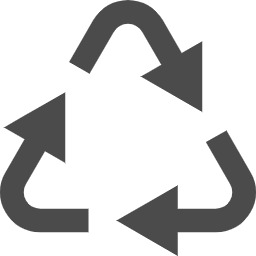Loren Chloe Balaoing
Hello everyone! This is Loren. I hope you are having a fantastic month. The weather is getting warmer, and the Sakura trees are blooming! I was given the opportunity to join a hybrid conference on March 13-17, 2023, and I will share what I learned in this blog.
First and foremost, the 3RINCs or the 3R International Scientific Conference on Material Cycles and Waste Management, is a platform organized by the Japan Society of Material Cycles and Waste Management in collaboration with international associations. The 3RINCs aims at sharing and discussing of research for a better use of resources to achieve sustainable production and consumption of materials through the 3Rs (reduce, reuse, recycle). These researches include themes that reduce greenhouse gas emissions and minimize environmental impact. The conference consisted of topics about solid waste management, circular economy, different case studies, best practices, and the like. The program kicked off with the plenary session of Prof. Toshiaki Yoshioka about the new plastic principle of Japan, 3R+Renewable, which aims for plastic sustainability and carbon neutrality by converting PET to oil and other recovered material that can be used for a circular economy and control the leakage of plastic wastes in the ocean.
Plastic leakage in the ocean is problematic is a big concern and needs to be addressed soon, and clean-up is not easy. This calls for opportunities on how to manage wastes to prevent further leakage in our water bodies and prevent it from getting tangled or eaten by marine life. There were a couple of sessions that discussed this, like the research of Dr. Susumu Ohnuma, where they did a field experiment to determine the better intervention to prevent citizens from throwing trash in riverside, or the good practices of Indonesia in preventing mangroves from plastic pollution presented by Ms. Ellen Edita. Additionally, we are seeing microplastics consumed by marine life, which we, humans can potentially ingest by eating seafood. Recently, a few studies reported microplastics in the water that we drink. Microplastics have multiple sources, like larger sized plastics that were broken down naturally or mechanically, and plastics that are intentionally made into tiny pieces for manufacturing or cosmetic purposes. There was an interesting point that was brought up during one of the general sessions where it seems like research about macro-plastics and microplastics is independent from each other, but as we know, macro-plastics become microplastics eventually. So, what is the link between the two? The discussion among the panel came to management of plastics. As we may or may not know, plastics are thrown in the landfill, especially for developing countries. For countries with little landfill development, monitoring and controlling wastes is important. Which is why refusing the use of plastic every time we have the chance is a big help. On top of that, converting these landfills into a sanitary landfill will help in solving the plastic problem. On the topic of waste management, a collection scheme is as important as the last step of the whole waste management process. According to one of the panelists, making a collection scheme that is well-thought-out and not too complicated to the citizens makes for a more participative outcome.
One of the sessions that really stuck to me was the special session on Plastic Management Policy and International Cooperation Towards a Circular Economy. I learned that a comprehensive policy on plastic management should be formulated and is needed if the cooperation of everyone is urged. It is also hard to ask for everyone’s cooperation if there is no law attached to it, even if it is for the benefit of all. In the Philippines, we have the Republic Act 9003 or the Ecological Solid Waste Management Act, which outlines how solid waste management works (or is supposed to work) in the country. One of the sections in this law bans the use of incineration as a means of treating waste, so the final treatment or destination of solid waste is through landfills. Open dumpsites are also told to be closed or converted to sanitary landfills because of this law. However, since the Philippines is one of the top countries which leaks plastics in the ocean, there is a need to act in recalling the plastics that are thrown in beaches and other bodies of water. Recently, some sections of this law were amended and transformed to Republic Act 11898 which institutionalizes the extended producer responsibility on plastic packaging waste. As Professor Arturo Figueroa also explained, the lawmakers in the Philippines are now open-minded to use other technologies in treating plastic waste, including incineration or waste-to-energy facilities. There are now feasibility studies and pretesting of waste-to-energy facilities in some areas of the country. This special session promotes sharing of knowledge and situations in different countries, as well as recommendations for waste management and circular economy.
One of our lab members, Radhi, also gave a presentation about the future effects of the relocation of Indonesia’s capital city from Jakarta to Nusantara in the field of solid waste management. His presentation shows scenarios that could happen, based on the experience of Australia and Brazil (such as the adaptability of Australia regarding environmental concerns and the prevention of economic loss in Brazil by employing waste scavengers). Overall, the five-day conference presented research on handling plastic wastes for a circular economy that prevents plastic leakage on the ocean, prevents climate change, and achieves carbon neutrality. Research ranges from new technologies, new trends, and attitudes of plastic consumers, among others. Consumer attitudes especially intrigued me, because I’m particularly interested in the attitudes of athletes when it comes to solid waste.
This concludes my blog. I hope you enjoyed reading as I enjoyed sharing it! For further information about 3RINCs, you can check this website: https://www.3rincs.org/.
